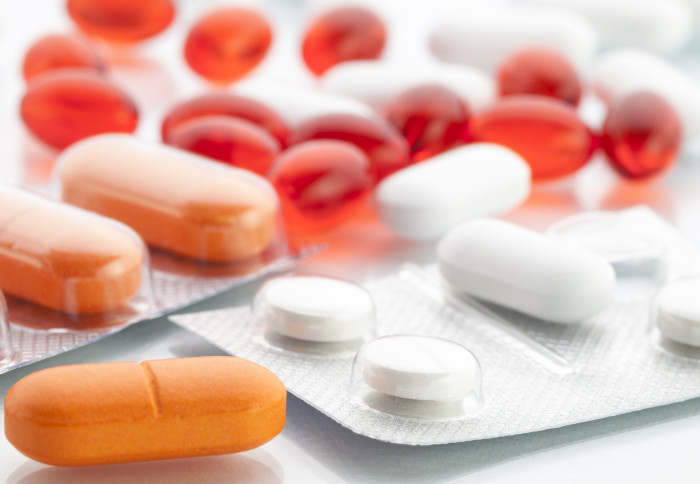Global trial reports on use of tocilizumab in COVID-19 pneumonia
by Maxine Myers

The anti-inflammatory treatment tocilizumab does not significantly improve outcomes for patients with severe COVID-19 pneumonia, a trial has found.
However, researchers found that tocilizumab reduced the time the patients spent in hospital by an average of 8.4 days and reduced time spent in the ICU by an average of 6 days.
The COVACTA randomised controlled trial was the first to thoroughly investigate the effect of tocilizumab on patients with the most severe form of COVID-19 pneumonia and involved 450 patients in 60 hospitals around the world. The UK arm of the trial was led by Dr Nichola Cooper and Dr Taryn Youngstein of Imperial College London and Imperial College Healthcare NHS Trust. The results are published in The New England Journal of Medicine.
COVID-19 impact
Severe COVID-19 is caused by the body’s own response to the virus setting off a wave of hyper-inflammatory activity. If this inflammation can be controlled it can dramatically reduce coronavirus deaths. Tocilizumab has been used for years to dampen the immune response in rheumatoid arthritis, and more recently in CAR-T therapy for cancer, minimising patients’ risks of suffering a cytokine storm.
Dr Cooper from the Department of Immunology and Inflammation at Imperial College London, who is also Consultant Haematologist at Imperial College Healthcare NHS Trust, said: “Very early on in 2020, there were signals coming out of Wuhan that patients with high levels of inflammation did much worse than others. We already knew that tocilizumab could be used to treat inflammation. So as the virus began spreading in the UK and we were facing a tsunami of patients with these hyperinflammatory symptoms, it was something we were very keen to definitively trial.”
The global trial, funded by Hoffman-LaRoche, was designed with recruitment available to any single patient at any stage of severe Covid pneumonia in the participating hospitals. Whilst recruiting, Drs Cooper and Youngstein developed a COVID-19 Treatment Group to trial immunosuppressive medicines in those ineligible for clinical trials, speaking to others at Imperial including Professor Anthony Gordon, who was working on the REMAP-CAP trials investigating the use of steroids for COVID-19patients.
Global trial
The trial aimed to see if the drug would reduce mortality or improve a patient’s condition after 28 days. Ultimately, tocilizumab wasn’t found to cause a statistically significant result compared to a placebo, although it was proven not to cause harm. However, other meaningful effects were seen.
Dr Youngstein from Imperial’s National Heart and Lung Institute, who is also Consultant Rheumatologist at Imperial College Healthcare NHS Trust, said: “The impact of tocilizumab on length of stay was a reduction of over a week. Although this wasn’t what the trial was designed to primarily look at, to reduce ICU time by nearly a week may be clinically significant if replicated. Safety data was also important and using immunosuppressing COVID-19 with IL-6 inhibition did not cause harm to the patients in the study.”
Dr Cooper agreed: “Many patients in this trial had already been in intensive care for some time, so were already very sick. We know tocilizumab can have beneficial effects, but clearly this specific population didn’t respond the way others do. There is still so much we need to find out about what causes the inflammation and blood clots in COVID-19.”
Standard treatment
"We know tocilizumab can have beneficial effects, but clearly this specific population didn’t respond the way others do. There is still so much we need to find out about what causes the inflammation and blood clots in COVID-19." Dr Nichola Cooper from the Department of Immunology and Inflammation at Imperial College London and Consultant Haematologist at Imperial College Healthcare NHS Trust
Following other successful trials, tocilizumab has now become standard NHS treatment for specific COVID-19 patients admitted to hospital. Dr Youngstein said: “If you get admitted with COVID-19 and your inflammatory markers are high, you’ll now immediately be given tocilizumab, plus steroids – something we were unable to give patients this time last year. It shows that clinical trials can genuinely change practice within the course of a year.”
Dr Cooper and Dr Youngstein are now recruiting patients for the upcoming MATIS multi-site study, which will trial different immune modulators, and target COVID-19 patients on arrival at hospital, in the hopes of preventing hyperinflammation much earlier in the disease.
Article text (excluding photos or graphics) © Imperial College London.
Photos and graphics subject to third party copyright used with permission or © Imperial College London.
Reporter
Maxine Myers
Communications Division